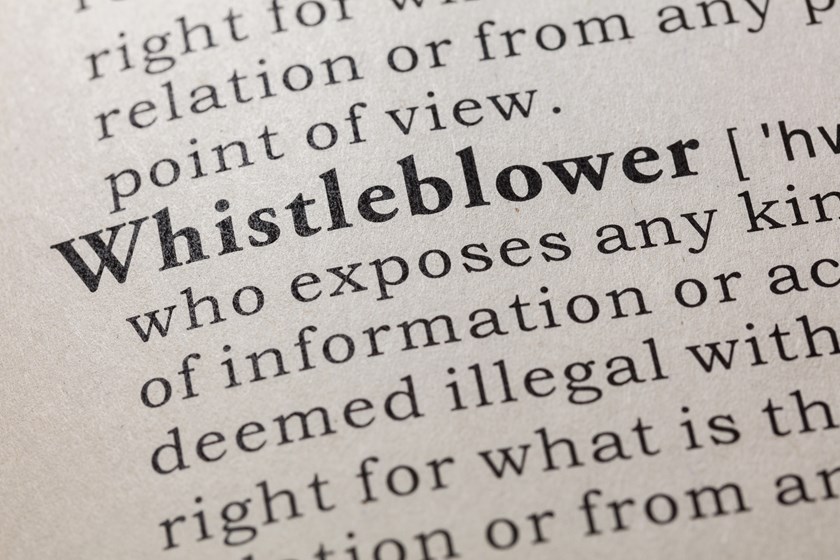Employer's Duties - References and Negligent Misstatement
Blog

When providing a reference, are employers under a duty to examine the procedural fairness of earlier investigations upon which facts and opinions in the reference are based?
Helpfully, no (save where there is a "red flag" prompting further inquiry), found the High Court in the recent case of Hincks v Sense Network Ltd [2018] EWHC 533 (QB). In this blog, I consider guidance given by the court on the nature of the duty owed by a reference writer to the subject of the reference and provide practical guidance on how employers should approach references.
Background
For some background on this case, Mr Hincks, an independent financial adviser (IFA), brought a claim for negligent misstatement following an unfavourable reference from the defendant company. Sense Network conducted an investigation meeting and ultimately terminated Mr Hincks' authorisation to work as an IFA after discovering he had knowingly breached a requirement to obtain pre-approval before making a financial product transaction. The investigation also found that Mr Hincks had attempted to conceal his conduct and, as Mr Hincks had derived fee income from the transaction, his actions were deemed to be malicious.
Sense Network wrote a reference which was critical of his conduct. It stated that Mr Hincks had "knowingly and deliberately circumvented" the pre-approval process during the course of his employment.
It was Mr Hincks' case that the reference gave a misleading impression; that elements of it were untrue and inaccurate; and that the opinions expressed in it were based on an investigation which was no more than a sham, conducted in bad faith. Mr Hincks argued that where negative opinion was based on an investigation and its conclusions, it was incumbent on the referee to be satisfied that the investigation had been conducted reasonably, was procedurally fair and consistent with the standard of a reasonable employer.
This claim was dismissed by the High Court, citing the "formidable difficulties" with the claimant's unjustified assumption that an assessment of the procedural fairness of earlier investigations would be possible – the court noted that if the reference request was made significantly after the investigation, the writer may have very little or no documentation or information, and the relevant staff may have left. Even if it were possible, such an assessment could involve a wide range of matters, thereby imposing a "very considerable" burden on the reference writer. Mr Hincks' proposed duty would effectively stultify the business of reference writing and would, most likely, lead to references circumscribed by qualifications and uncertainty.
Duty of care when writing a reference
The court turned to the standard of care to be exercised by a reasonable reference writer. It will be fact specific and should be expressed in broad terms but common features of the duty include:
(a) conducting an objective and rigorous appraisal of facts and opinion, particularly negative opinion;
(b) taking reasonable care to be satisfied that the facts set out in the reference are accurate and true and that, where an opinion was expressed, there is a proper and legitimate basis for the opinion;
(c) where an opinion derives from an earlier investigation, taking reasonable care in considering and reviewing the underlying material so that the reference writer is able to understand the basis for the opinion and be satisfied that there was a proper and legitimate basis for it; and
(d) taking reasonable care to ensure that the reference was fair and not misleading, either by reason of what was not included or by implication, nuance or innuendo.
The court noted that there may be occasions when the content of the duty would go further. However, in its analysis of this case, the High Court found that there was nothing within the relevant investigation materials which would trigger the need for wider examination of the findings or the procedural fairness of the investigation. The negative opinion expressed in the reference was supported by the material; it was neither inaccurate nor misleading.
Guidance on approaching references
Practically speaking, how should employers approach references? A brief reminder:
1. Generally, there is no obligation for an employer to provide a reference, or for it to be detailed or comprehensive. The obvious caveat is where employers are required to go further by regulation.
2. Should an employer choose to provide a reference, it is responsible for the contents as it is provided on the employer's behalf.
3. It is therefore advisable to have a clear (ideally written) policy in place which dictates whether or not to give references. It should also include which employees / levels of management are permitted to give a reference and what sort of information to include. Importantly, this policy should be consistently applied or it may lead to allegations of discrimination or breach of trust and confidence.
4. Many employers choose to limit references to a brief factual reference including dates of employment and the post(s) held by the employee. This approach mitigates the risk that the reference omits something material. If employers provide such a reference, they should explain that it is their policy to provide a reference only in this format.
5. A referee must be able to justify and support any comments made in a reference and show either that they are true, or that they honestly believe that they are true. The contents of the reference should be consistent with any reason for dismissal. It must be accurate, fair and should not present facts so as to give a misleading impression overall. Hincks v Sense Network is helpful in considering the limits on the duty of care when an employer expresses an opinion in a reference.
6. Comments on suitability for a new job should be given with care; they may be less easy to objectively justify. A reference should focus on the referee's specific knowledge of the employee.
7. Employers should also consider, as highlighted by Hincks v Sense Network, what type of information it should retain for the purposes of preparing a reference. Particularly when under regulatory requirements with respect to the matters to be addressed in a reference, ensuring that adequate documentation which is retained is important. However, care should be taken when providing personal data, particularly any sensitive personal data.







